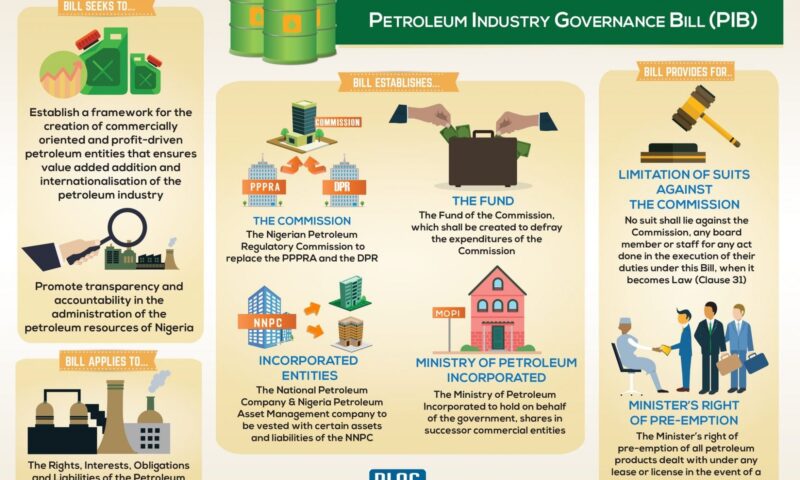Democracy & Governance
The Tragic Trajectory Of The Petroleum Industry Governance Bill (PIGB) -By Michael O. Ogunjobi Esq.


Admittedly, the public sector, represent the realm where the government operates for the benefits of the citizenry. But government has not been able to sustain public corporations; thereby making them unprofitable; fail to give employees satisfaction in their work; fail to give strong direction to the government; fail significantly to advance their lofty goals; and making little contribution to the polity at large. Over the years, concerted efforts to employ public corporations in Nigeria to promote development have had limited success. Further, an illumination of the operations of public corporations makes it apparent that their failure is a consequence of structural constraints imposed on them by government.
This prompted various reforms, primarily the introduction of the Privatisation and Commercialization Decree No. 28 of 1999, promulgated by the military regime of General Abdulsalami Abubakar (rtd) which seeks to facilitate the effective privatisation of public corporations, within the parameters of the general development objectives of the nation. A remarkable offshoot of this is the signing into law of the Electricity Power Sector Reform Act of 2005 on 11th of March, 2005 which did not only lead to the end of monopoly over generation, transmission, and distribution of electricity, hitherto enjoyed by NEPA, but also the replacement of NEPA with Power Holding Company of Nigeria (PHCN) Plc which took over the functions of NEPA and all its assets, liabilities and staff.
The importance of a framework for creating commercially oriented and profit driven petroleum entities, aimed at adding value by ensuring its compliance with international standards, transparency and accountability in the administration of the country’s oil and gas resources can never be termed- ‘much ado about nothing’. This explains the tortuous seventeen years journey of the widely acclaimed Petroleum Industry Governance Bill comprising 93 sections which is divided into seven parts with four schedules. In this regard, the adage- no matter how long the distance may be, the pig will reach its destination, is apt!
PIGB accords with contemporary globalization, liberalization, marketization and structural transformations of national economies to propel the expansion of the private sector, on the one hand, and downsizing of the public sector too.
Some of the innovations of PIGB, which is quite timeous considering biting recession that has crippled our polity’s economy includes: creation of a new regulatory agency, known as Nigeria Petroleum Regulatory Commission, to take over the functions of the Petroleum Inspectorate, the Department of Petroleum Resources, and the Petroleum Products Pricing Regulatory Agency, to pave way for a single regulator for the petroleum industry, and reduced powers of the President and the Minister of Petroleum Resources in exercising control over the oil and gas sector.
In addition, two new companies, Nigeria Petroleum Assets Management Company and National Petroleum Company, would be established with certain assets and liabilities of Nigerian National Petroleum Corporation. Not forgetting the provisions catering for staff transfers, a delight to employees, job seekers, NLC, TUC, PENGASSAN, and NUPENG from impacted agencies and the NNPC which being a creation of the law is to be unbundled though not outrightly privatized just yet within the ambit of the PIGB.
Though the Petroleum Industry Governance Bill only deals with one aspect of the initial Petroleum Industry Bill, that is, the governance and institutional framework of the Nigerian Petroleum industry, we look forward to the passage of the other aspects of the PIB, such as the Petroleum Fiscal Framework Bill; Petroleum Industry Downstream Administration Bill; Petroleum Industry Revenue Management Framework Bill and the Petroleum Host Community Bill. Not forgetting to add a new minimum wage legislation to mandate a periodic review of minimum wage in accordance with prevalent economic condition of the country.
The populace awaits increased investment in the petroleum industry with optimized revenues accruing to the Government and a liberalized downstream petroleum sector under the new fiscal framework. It is expected that corruption, poor institutions, weak regulations, and lack of transparency, being some of the hydra headed barriers to development in the oil and gas sector will become forgotten memoirs in no distant time.
Michael O. Ogunjobi Esq. writes from Jireh & Greys Attorneys in Lagos.



















